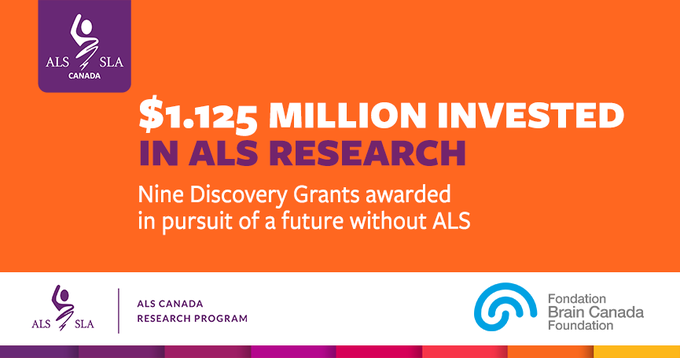
Brain Canada and the ALS Canada Research Program have awarded new Discovery Grants to play a critical role to play in contributing to global scientific discovery in amyotrophic lateral sclerosis (ALS) and improving the lives of people living with ALS and their families. Of the nine grants, four were awarded to LMP-appointed faculty.
Amyotrophic Lateral Sclerosis (also known as ALS, Lou Gehrig’s disease, or motor neuron disease) is a disease that gradually paralyzes people because the brain is no longer able to communicate with the muscles of the body that we are typically able to move at will. Over time, as the muscles of the body break down, someone living with ALS will lose the ability to walk, talk, eat, swallow, and eventually breathe, according to the The ALS Canada website.
Many researchers in LMP are seeking to find ways to treat this disease and alleviate suffering. The broad range of research receiving funding shows the incredible diversity of LMP.
Does hypermetabolism contribute to ALS disease processes? Dr. Hoon-Ki Sung, The Hospital for Sick Children
How could the loss of the normal function of C9orf72 contribute to ALS? Dr. Janice Robertson, Tanz Centre for Research in Neurodegenerative Diseases
Can image-guided focused ultrasound technology aid in the delivery of promising new ALS therapies? Dr. Isabelle Aubert, Sunnybrook Research Institute
Can a new biomarker in the eye help to advance ALS research and care? Dr. Yeni Yucel and Dr. Neeru Gupta, Unity Health Toronto, both cross-appointed from the Department of Ophthalmology & Vision Sciences